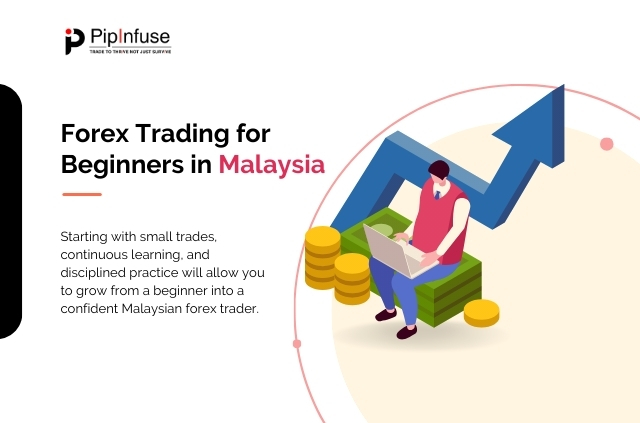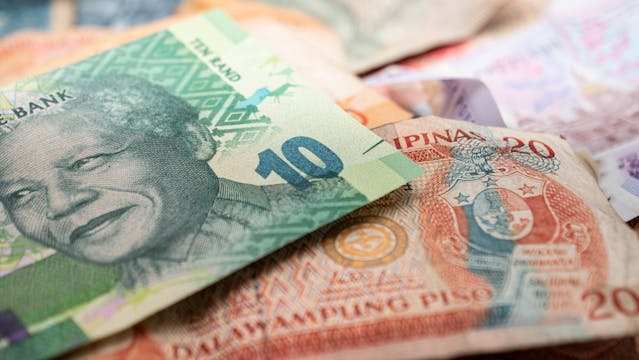If you are interested in forex trading for beginners and want to understand its fundamental principles, you are in the right place. This guide provides a structured approach to forex trading for beginners in Malaysia.
It explains what forex trading entails, the reasons it has become popular among Malaysian traders, and offers practical guidance on how do you trade forex effectively. By the end of this article, you will be equipped with the knowledge necessary to begin trading confidently.

Why Forex Trading for Beginners in Malaysia Makes Sense
For those asking how to trade forex from scratch, there are several reasons why starting in Malaysia is advantageous:
- Global accessibility. Forex is the largest financial market in the world, operating 24 hours a day, five days a week, with high liquidity and competitive pricing.
- Low capital requirements. Many brokers offer demo accounts and micro-lot trading, allowing beginners to practice with minimal financial risk.
- Regulatory support in Malaysia. Traders can select brokers regulated by the Securities Commission or approved by Bank Negara Malaysia, ensuring compliance and safety.
Thus, forex trading for beginners in Malaysia can begin safely with small investments and measured learning steps.
Step by Step: How Do You Trade Forex in Malaysia
Here is a structured guide on how do you trade forex in Malaysia:
1. Understand the Basics of Malaysia Forex Trading
Begin with a solid understanding of key concepts:
- Definition of Forex: Trading one currency against another to profit from fluctuations in value.
- Essential terminology: Bid, ask, spread, leverage, stop-loss, and lot size are critical terms to grasp before initiating trades.
Visit: Forex Trading for Beginners
2. Use a Demo Account
A demo account allows beginners to practice without financial risk:
- Platforms such as MetaTrader provide tools for order placement, stop-loss execution, and chart analysis using virtual funds.
- Think of this as a simulation that prepares you for real-market conditions safely.
3. Select a Licensed Broker
When choosing a broker for Malaysia forex trading, consider the following:
- Verify regulation by Bank Negara Malaysia or the Securities Commission.
- Assess the broker’s pricing transparency, platform usability, mobile accessibility, and customer support.
4. Develop a Trading Strategy
A clear strategy is essential:
- Decide on a trading style: day trading, swing trading, or long-term position trading.
- Use technical analysis, such as chart patterns, in conjunction with fundamental analysis, including economic indicators and news events, to inform your trades.
Read : MetaTrader 4 vs MetaTrader 5
5. Implement Effective Risk Management
Risk management is crucial for consistent results:
- Define acceptable loss per trade, typically 1–2% of the trading account.
- Use stop-loss orders, limit leverage, and consider micro-lot trades to control exposure.
- Maintain a trading journal to track trades, analyze performance, and refine strategies.
6. Continuous Learning and Adaptation
Successful traders continuously learn and adapt:
- Stay informed through news, economic calendars, and market analysis.
- Refine strategies according to market conditions and trading experience.
Emerging Trends in Forex Trading for Beginners
Learning forex trading for beginners can be exciting, but it’s important to understand how the market works and take the right steps from the start. Understanding current trends can help Malaysian traders make informed decisions and stay competitive in the market.
1. Integration of Artificial Intelligence
Artificial Intelligence (AI) is increasingly being used in trading platforms. AI-powered tools can analyze large datasets, detect patterns, and even suggest trade opportunities. Beginners can benefit from AI by gaining insights that would take much longer to discover manually, helping them trade smarter and more efficiently.
Visit: Forex Trading and Investments
2. Increased Market Volatility
Currency markets are becoming more dynamic due to global economic shifts and geopolitical events. For Malaysian traders, the Ringgit may fluctuate based on trade policies, commodity prices, or foreign investment trends. Beginners should be aware of this volatility and use risk management strategies like stop-loss orders and position sizing to protect their investments.
3. Popularity of Digital Assets
Digital currencies, including Bitcoin and Ethereum, are increasingly part of the forex trading conversation. Some brokers allow beginners to trade cryptocurrencies alongside traditional currency pairs. While this offers diversification, these assets are highly volatile, so new traders should approach them cautiously and avoid overexposure.
4. Focus on Sustainable and Ethical Trading
There is growing attention on sustainable and ethical investing. Traders are considering environmental, social, and governance (ESG) factors in their decision-making. Beginners interested in responsible investing can look for brokers and platforms that support ESG-compliant trades while still focusing on traditional forex pairs.
Final Thoughts
Getting started with forex trading as a beginner doesn’t have to feel overwhelming. In Malaysia, with accessible brokers, demo tools, and structured learning, beginners have the resources to start effectively. You now understand how do you trade forex, from the fundamentals to risk management.
Key takeaways:
- Maintain simplicity in strategy.
- Prioritize risk management.
- Approach the market with curiosity rather than greed.
Starting with small trades, continuous learning, and disciplined practice will allow you to grow from a beginner into a confident Malaysian forex trader.


